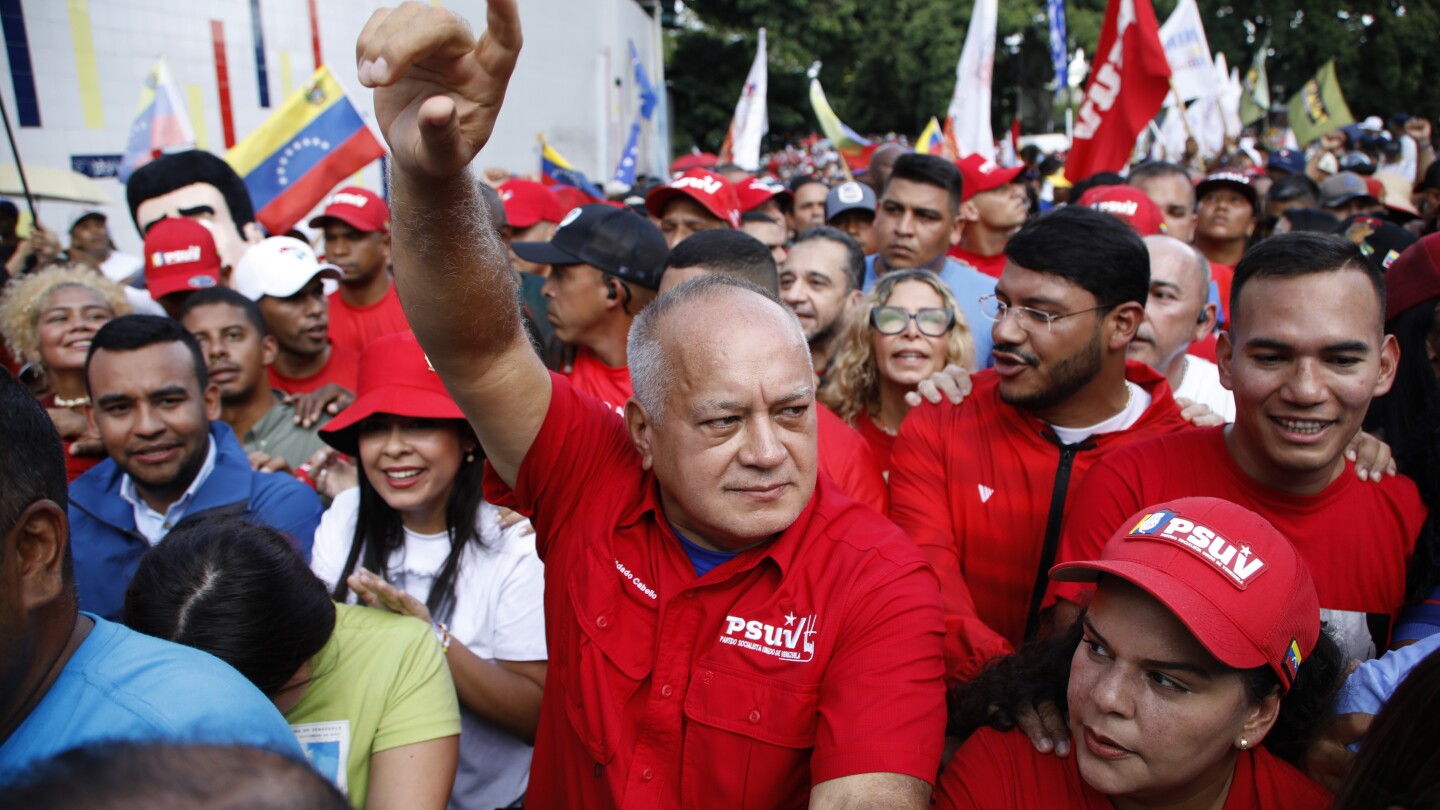CARACAS, Venezuela (AP) — Venezuelan President Nicolás Maduro on Tuesday appointed a ruling socialist party boss to oversee the country’s police forces, empowering a hardline loyalist who has vowed to pursue government opponents as part of an ongoing crackdown that has alarmed human rights groups.
Maduro named Diosdado Cabello Interior Minister as part of a Cabinet shuffle following last month’s contested presidential election.
Along with Maduro, Cabello is one of the most fervent stalwarts of the so-called Bolivarian revolution started by the late Hugo Chávez and has long been considered the second most powerful person in Venezuela after Maduro. A retired army lieutenant, he fought alongside Chávez in a failed military uprising in 1992 and later served as acting president when Chávez himself was removed in a brief coup a decade later.
However, Chávez passed him over when he picked Maduro — a civilian with no military pedigree — as his successor shortly before he died of cancer in 2013. Since then, he’s served in a number of roles, including National Assembly president and head of the ruling socialist party. Until now, he never served in Maduro’s Cabinet, an omission that has long fueled speculation of an unspoken rivalry between the two.
Human rights groups fear that Cabello’s appointment to Interior Minister, with oversight of Venezuela’s police forces, will intensify the government’s heavy handed response to protests that erupted after last month’s presidential election, when Maduro was declared the winner despite strong evidence presented by the opposition that its candidate prevailed by a 2-to-1 margin.
More than 2,000 people — including journalists, politicians and aid workers — have been arrested since the July 28 election. The Inter-American Commission on Human Rights on Wednesday is expected to deliver a report in Washington at a special meeting of the Organization of American States to discuss the crackdown.
“If the new Cabinet is a bellwether of what Maduro intends to do, Cabello’s appointment is an indication of even more repression to come,” said Juanita Goebertus, director for the Americas at Human Rights Watch.
Cabello, 61, has been among key insiders calling for a forceful response to those casting doubt on Maduro’s victory. With deep roots in the security forces, he’s seen his influence expand as Venezuelans have tired of Maduro, blaming him for wrecking the oil-rich economy.
“They’re hiding like rats but we’re going to grab them,” Cabello said about several prominent opponents in an address to the Maduro-controlled legislature a day after the election.
The U.S., Canada, European Union and Switzerland are among governments that have sanctioned Cabello for an array of alleged crimes ranging from money laundering to human rights abuses. The U.S. has also offered a $10 million reward for his arrest to face federal charges of leading what U.S. prosecutors have dubbed the “Cartel of the Suns,” an alleged drug-smuggling ring involving Venezuela’s military.
Cabello is perhaps best known — and feared — for a weekly talk show on state TV, called “Hitting it With a Sledgehammer,” in which he smears and attacks government opponents.
Maduro said the Cabinet shuffle aims to “accelerate and deepen changes that the people need.” As part of the shakeup, his vice president, Delcy Rodriguez, will also now serve as oil minister. Hector Rodriguez, governor of Miranda state surrounding Caracas and who some saw as a younger alternative to Maduro, was picked to serve as education minister.
___
Goodman reported from Miami
___
Follow AP’s coverage of Latin America and the Caribbean at https://apnews.com/hub/latin-america

